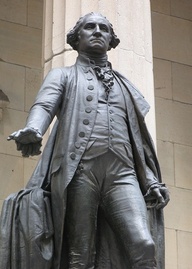
Recently our college sponsored a forum with 2013 Torch Award recipients, an award from the Cincinnati Better Business Bureau that “recognizes those businesses that have made a commitment to and exemplify ethics and integrity in the marketplace.” Here are criteria for the Torch Award as stated by the BBB:
- High ethical standards of behavior toward customers, suppliers, shareholders, employees, and communities in which they do business:
- Demonstrated ethical practices surrounding their buyer/seller relationships;
- Longstanding history/reputation of ethical practices in the marketplace;
- Marketing, advertising, communications, and sales practices which reflect a true representation of what is being offered in the marketplace;
- Acknowledgement of ethical marketplace practices by industry peers and in the communities where they do business;
- Management practices and policies that give long term value to shareholders, customers, employees, vendors, and surrounding communities;
- Training programs that assist employees in carrying our established ethics policies.
This year I took notes. Here are some insights from the Torch Award recipients:
- The leader has to set the standard, be the example. If a leader cuts a corner, fails to exhibit ethical behavior, how can the leader expect others in the organizations to be ethical in their conduct? It starts at the top.
- The leader must guide the culture, make an ethical culture happen. The leader cannot sit back and just hope an ethical culture will emerge.
- An ethical culture is a system. Engineer an ethical system into the fabric of your organization just as you would engineer any other system.
- Training in ethical conduct needs to be integral to the organization. Best is small group training led by organizational leaders, training where there is much discussion and give and take about real ethical issues in the workplace.
- Build an ethical culture through your hiring practices. Make questions about ethical situations part of interviews.
- Ethics is about trust and honesty. What bar do we want to set for ourselves? For what do we want to be known?
- Ethics has to be more than words on the back of a business card.
Image. From left to right: Jim Salters, CEO, The Business Backer; Valerie Landell, President & CEO, The Visiting Nurse Association of Greater Cincinnati & Northern Kentucky; Pam Green, President & CEO, Easter Seals TriState; John Lindberg, President, Dial One Security, Inc. Image by J. Ballard. Permission granted to use image by participants.

 RSS Feed
RSS Feed